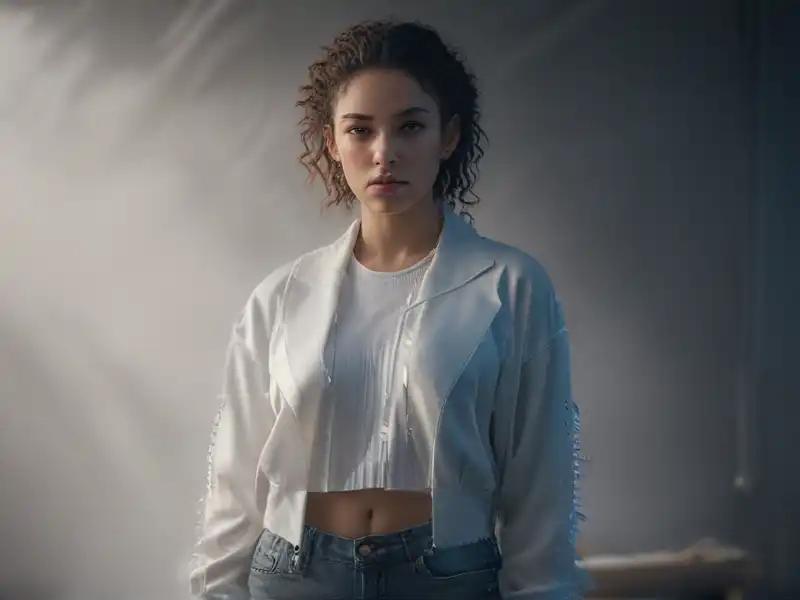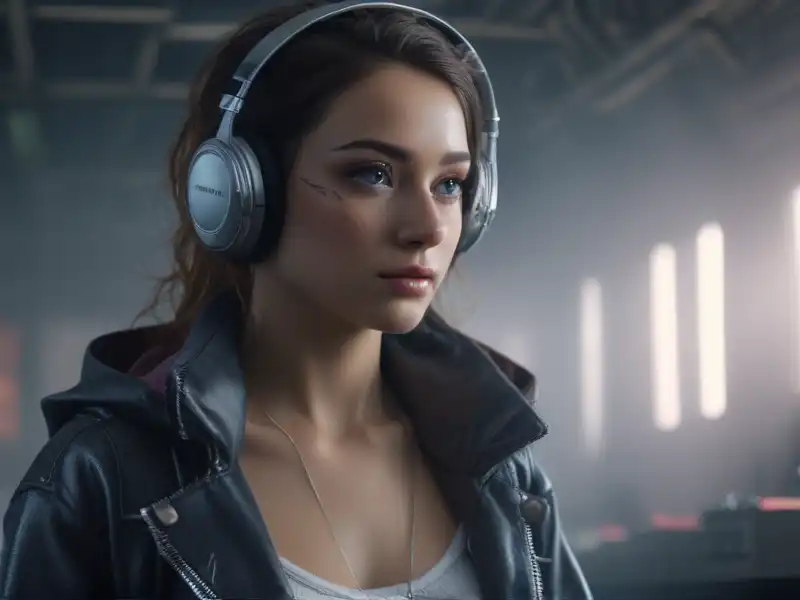Now new technologies make our life easier in many different areas. For example, coin collectors can use coin checker tools to quickly determine the rarity and value of specimens. One of such convenient tools is Coin ID Scanner - an application that helps all interested ones to analyze the features, origin and even the market price of coins. However, even the most advanced algorithm remains only an auxiliary assistant: the final conclusions are always left to the person, his knowledge and experience.
And what about the music sphere? Today, AI is greatly managing the task of composing songs, creating melodies in a matter of seconds. But is it capable of replacing a human being, for whom music is not just a set of notes, but a way to express emotions, experiences and a unique vision of the world? Or, as in the case of collecting, does technology only complement human creativity, but cannot replace it? Let us find out.

How Technology Compose Music
AI composes music by learning from vast amounts of existing compositions, analyzing their patterns, harmonies, and structures. Due to possibilities of machine learning and deep neural networks, AI identifies commonalities across different genres and applies these principles to generate new pieces. Essentially, AI doesn’t create from emotions or experiences, it remixes, reorganizes, and recombines existing elements into something that sounds new.
Some of the most advanced AI-driven music programs include:
MuseNet (by OpenAI) - This AI can compose in multiple styles, from Mozart to The Beatles, blending influences seamlessly.
AIVA (Artificial Intelligence Virtual Artist) - AIVA specializes in classical and cinematic music, often used in film scores and background compositions.
Magenta (by Google) - A research project that explores AI’s ability to generate melodies and harmonies using machine learning.
While these programs can create surprisingly cohesive and stylistically accurate compositions, they operate purely on statistical probabilities rather than personal inspiration. AI music lacks the raw emotion, intent, and storytelling that always highlights human-made compositions.
Pros and Cons of AI in Music to Consider
Artificial intelligence is changing the way music is composed, created and perceived. Some people may consider AI as a threat to traditional musicians, while others believe it is a great innovative tool to boost creativity and productivity. Like any other technological advancement, AI in music has both advantages and limitations.
So below you may see AI strengths and weaknesses and how it is transforming the music industry.
Advantages of AI in Music Composition
Despite the fact AI has some limitations, it offers several benefits that make it an attractive tool for musicians and producers.
Speed and efficiency: One of the biggest strengths of AI is its incredible speed. While human composers may spend days, weeks, or even months refining a song or symphony, AI can generate complete compositions in seconds. Thus, AI talents in music creation can be widely used in spheres that require large volumes of music, i.e. in films and TV, gaming, advertising.
Did you know that AI-generated music is already being used in Spotify’s personalized playlists? The service uses ML algorithms to analyze user preferences and generate personal music recommendations, to keep them more engaged.
Endless experimentation: AI’s ability to blend and remix genres opens up new creative possibilities. Unlike human composers who may stick to familiar styles, AI isn't limited by personal bias—it simply follows patterns and statistical probabilities.
AI as a creative assistant, not a replacement: Many composers and producers don’t see AI as a competitor, but rather as a collaborator. Due to AI help they can use generated melodies and harmonies, as well as receive inspiration from randomized chord progressions and melodies that can be further refined.
Interesting fact: In 2018, singer-songwriter Taryn Southern became one of the first artists to release an AI-assisted album, titled I AM AI. The AI software helped generate musical ideas, which she then refined and structured into full songs.
Why AI Cannot Fully Replace Human Composers
Despite AI’s impressive ability to generate music quickly and efficiently, it is far from perfection in ways that define truly great compositions. Music is more than just structured sound, it is emotion, storytelling, and human expression. AI may be able to imitate style and structure, but it lacks the depth and intent behind every note composed by a human artist.
1. Music conveys emotion and storytelling
A major limitation of AI-generated music is its inability to experience or express emotions. Music is always connected to human emotion - be it Beethoven composing symphonies despite losing his hearing or a pop artist channeling heartbreak into a song that resonates with millions. AI does not feel joy, pain, nostalgia, or passion; it only recognizes patterns and replicates them.
Even simple pop songs carry a personal meaning that the AI cannot understand. Take Adele's ballads, for example: her voice and lyrics express real life pain and longing that an algorithm could never replicate. The AI can generate an Adele-inspired song, but it won't have the authenticity that unites listeners.
2. Originality and innovation
AI music is entirely based on what already exists. It is not capable of innovation like human composers are. Historically, innovative musicians have changed musical direction by breaking the rules, and AI cannot handle that.
The Beatles changed the understanding of popular music due to the introduction of new recording techniques and unpredictable song structures. AI, on the other hand, mimics past styles but does not invent new ones.
Unconventional rhythms and dissonance of Stravinsky “The Rite of Spring” shocked audiences and changed classical music forever. AI could generate something similar today, but only because it has been exposed to Stravinsky’s work - not because it would think of it independently. Thus, AI is a mirror of past music, not a visionary for the future.
3. Creative control and artistic identity
Even when AI generates music, humans still make the final decisions. Musicians, producers and composers customize and polish compositions created by artificial intelligence, choosing what feels right based on intuition and experience.
Music is also deeply connected to individuality. A composer's unique voice is shaped with time by personal experience, culture, and individual creativity. However, AI has no individuality, so it relies entirely on statistical probabilities and existing data. While AI created music can be impressive, it still needs human help to be truly meaningful.
Humans vs. AI: Who Does It Better?
To truly compare human composers and AI, let’s break it down into key factors that define great music. Please refer to the table below.
Factor | Human Composers | Artificial Intelligence |
Emotional Depth | High, music is a reflection of human experience and emotions. | Limited, AI doesn’t experience emotions, it only mimics patterns. |
Speed | Requires time, composing music is a creative process. | Instant, AI can generate full compositions in seconds. |
Originality | Strong, humans innovate and create new genres and styles. | Constrained by data, AI can only remix what already exists. |
Adaptability | Evolves over time based on personal growth and cultural influences. | Pattern-based, AI adapts only through new data input. |
Independence | Fully autonomous, humans create from inspiration and experiences. | Requires human input, AI relies on datasets and guidance. |
Taking all the above we may see that AI excels in speed and efficiency, which males it a valuable tool for composers, producers, and commercial applications. However, when it comes to emotional depth, originality, and personal creativity, human composers remain unmatched.

The Future: Collaboration Between AI and Human Creativity
Rather than seeing AI as a replacement for composers, we should view it as an assistant that improves human creativity. Many musicians today integrate AI into their work to generate ideas, assist in orchestration, or even create entirely new sounds.
For example:
Film and game composers use AI to create background scores, speeding up the production process.
Songwriters experiment with AI-generated melodies and take inspiration for new compositions.
Producers manipulate AI-generated music to create unique, customized tracks.
Yet, just as a Coin ID Scanner helps identify rare coins but does not replace the expertise of an experienced numismatist, AI improves music creation without replacing the role of the artist.
While AI will continue evolving, true musical expression remains deeply human. So, we suppose that the future of music is not in choosing the best one, but in using the best things of both worlds.
Feeling vs. Technology: Which Voice Is Louder?
Algorithms can guess preferences, combine chords, and even create symphonies, but they do not know what it means to feel. Music is not just a set of notes, but a story told by the heart, so perhaps the future of music is not in the confrontation between man and machine, but in their collaboration. But while AI is just learning, human inspiration still has its main tool - the soul.


